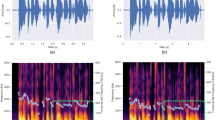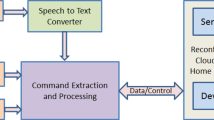Abstract
The emergence of voice-assistant devices ushers in delightful user experiences not just on the smart home front, but also in diverse educational environments from classrooms to personalized-learning/tutoring. However, the use of voice as an interaction modality could also result in exposure of user’s identity, and hinders the broader adoption of voice interfaces; this is especially important in environments where children are present and their voice privacy needs to be protected. To this end, building on state-of-the-art techniques proposed in the literature, we design and evaluate a practical and efficient framework for voice privacy at the source. The approach combines speaker identification (SID) and speech conversion methods to randomly disguise the identity of users right on the device that records the speech, while ensuring that the transformed utterances of users can still be successfully transcribed by Automatic Speech Recognition (ASR) solutions. We evaluate the ASR performance of the conversion in terms of word error rate and show the promise of this framework in preserving the content of the input speech.
Access this chapter
Tax calculation will be finalised at checkout
Purchases are for personal use only
Similar content being viewed by others
References
GAN-voice-conversion. https://github.com/njellinas/GAN-Voice-Conversion/
Speaker-recognition. https://github.com/ppwwyyxx/speaker-recognition/
Google: Cloud speech-to-text. https://cloud.google.com/speech-to-text/
Kaneko, T., Kameoka, H.: Parallel-data-free voice conversion using cycle-consistent adversarial networks. arXiv preprint arXiv:1711.11293 (2017)
Kaneko, T., Kameoka, H., Tanaka, K., Hojo, N.: Cyclegan-VC2: improved CycleGAN-based non-parallel voice conversion. In: Proceedings of IEEE International Conference on Acoustics, Speech, Signal and Processing (ICASSP 2019) (2019)
Kelly, G.: Compare the privacy practices of the most popular smart speakers with virtual assistants. https://www.commonsense.org/education/articles/compare-the-privacy-practices-of-the-most-popular-smart-speakers-with-virtual-assistants
Liao, Y., Vitak, J., Kumar, P., Zimmer, M., Kritikos, K.: Understanding the role of privacy and trust in intelligent personal assistant adoption. In: iConference (2019)
Medeiros, J.: The most exciting voice gadgets from CES 2019. https://www.voicesummit.ai/blog/the-most-exciting-voice-gadgets-from-ces-2019 (2019)
Niknazar, M., Vempaty, A., Haley, P.: A privacy solution for voice enabled devices connected to the internet (extended abstract). In: Proc. IEEE Global Conf. Signal and Inf. Proc. (GlobalSIP) (2019)
TechCrunch: 41% of voice assistant users have concerns about trust and privacy
Toda, T., et al.: The voice conversion challenge 2016. In: Interspeech, pp. 1632–1636 (2016)
Wiggers, K.: How Amazon, Apple, Google, Microsoft, and Samsung treat your voice data. https://venturebeat.com/2019/04/15/how-amazon-apple-google-microsoft-and-samsung-treat-your-voice-data/ (2019)
Wikipedia: Virtual assistant privacy. https://en.m.wikipedia.org/wiki/Virtual_assistant_privacy
Author information
Authors and Affiliations
Corresponding author
Editor information
Editors and Affiliations
Rights and permissions
Copyright information
© 2021 Springer Nature Switzerland AG
About this paper
Cite this paper
Niknazar, M., Vempaty, A., Kokku, R. (2021). Voice Privacy with Smart Digital Assistants in Educational Settings. In: Cristea, A.I., Troussas, C. (eds) Intelligent Tutoring Systems. ITS 2021. Lecture Notes in Computer Science(), vol 12677. Springer, Cham. https://doi.org/10.1007/978-3-030-80421-3_31
Download citation
DOI: https://doi.org/10.1007/978-3-030-80421-3_31
Published:
Publisher Name: Springer, Cham
Print ISBN: 978-3-030-80420-6
Online ISBN: 978-3-030-80421-3
eBook Packages: Computer ScienceComputer Science (R0)




